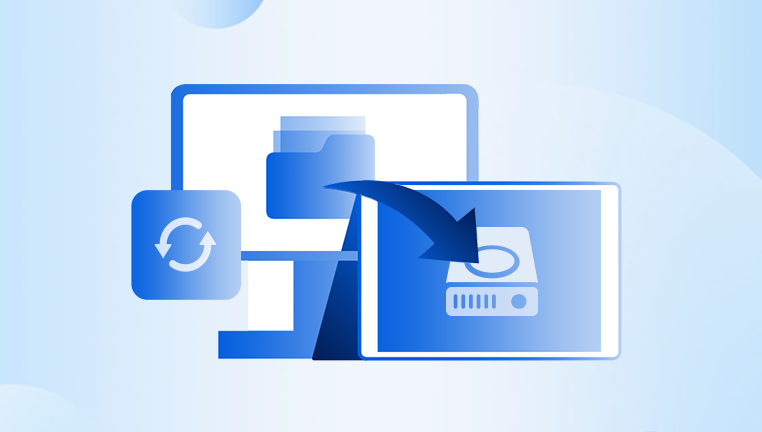1. External hard drive data recovery cost
External hard drives are widely used to store large amounts of important data, such as photos, videos, documents, and business-critical information. However, data loss on external hard drives can occur due to various reasons, including physical damage, logical errors, software corruption, and accidental deletion. When faced with data loss, many users turn to professional data recovery services.
2. Factors Affecting Data Recovery Cost
2.1 Type of Data Loss
Physical Damage: If the external hard drive has suffered physical damage, such as a dropped drive, head crash, or motor failure, the recovery process is generally more complex and costly. Physical damage often requires specialized equipment and clean - room facilities to repair or replace damaged components. For example, replacing a damaged read - write head in a hard drive can cost several hundred dollars, plus the labor and overhead costs of the data recovery service.

Logical Errors: Logical errors, such as file system corruption, virus attacks, or accidental formatting, are usually less expensive to recover from than physical damage. These issues can often be addressed using software - based recovery tools and techniques. However, the complexity and cost can still vary depending on the extent of the damage and the type of file system involved. For instance, recovering data from a severely corrupted NTFS file system may be more difficult and costly than from a relatively simple FAT32 file system.
2.2 Hard Drive Capacity and Technology
Capacity: Larger - capacity external hard drives generally cost more to recover data from. This is because they contain more data, and the recovery process may take longer. Additionally, the cost of the recovery tools and software used may be higher for larger drives. For example, recovering data from a 4 - TB hard drive may cost significantly more than from a 500 - GB drive.
Technology: Different hard drive technologies, such as traditional mechanical hard drives (HDDs) and solid - state drives (SSDs), have different recovery requirements and costs. HDDs are more prone to physical damage due to their moving parts, while SSDs have their own unique issues related to flash memory wear - out and controller failures. Data recovery from SSDs often requires specialized knowledge and tools, which can increase the cost. For example, recovering data from a failed SSD with advanced encryption features may be more expensive than from a standard HDD.
2.3 Data Recovery Company Reputation and Expertise
Reputation: Well - established and highly - regarded data recovery companies often charge higher fees. Their reputation is built on years of successful recoveries and a track record of providing quality service. These companies invest in state - of - the - art equipment and employ experienced technicians, which justifies their higher prices. For example, a company like Kroll Ontrack, which is a leader in the data recovery industry, may charge a premium for its services compared to a less - known local provider.
Expertise: The level of expertise of the data recovery technicians also affects the cost. Companies with technicians who have advanced certifications and extensive experience in handling complex data loss scenarios can offer more reliable recovery services but will charge accordingly. For instance, a technician with specialized training in recovering data from RAID arrays or encrypted drives will command a higher hourly rate than a general - purpose data recovery specialist.
2.4 Urgency of the Recovery
Standard Service: Most data recovery companies offer a standard service option, which typically takes several days to a few weeks to complete. This option is the most cost - effective, as the company can schedule the recovery job according to its available resources and workload. The cost for standard service may range from a few hundred to several thousand dollars, depending on the other factors mentioned above.
Expedited Service: If the user requires the data to be recovered urgently, many companies offer expedited or rush services. This usually involves dedicating additional resources and technicians to the job to complete it within a shorter time frame, often within 24 - 48 hours. However, expedited services can be significantly more expensive, sometimes doubling or even tripling the cost of the standard service. For example, a standard data recovery job that costs $1000 may cost $2000 - $3000 if expedited.
3. Average Cost Ranges
3.1 Basic Logical Data Recovery
For relatively simple logical data recovery cases, such as recovering accidentally deleted files or dealing with minor file system errors, the cost can range from $100 to $500. This is often the case when the data loss is not severe and can be resolved using common data recovery software and techniques. Many local computer repair shops or small - scale data recovery services may offer these basic services at the lower end of this price range.
3.2 Moderate - Complexity Data Recovery
When dealing with more complex logical issues, such as recovering data from a corrupted partition or after a virus attack that has caused significant damage, the cost typically rises to between $500 and $1500. This requires more advanced software tools and the expertise of a data recovery specialist to analyze and repair the file system and retrieve the lost data. Larger data recovery companies with more resources and experience may charge towards the higher end of this range.
3.3 Physical Damage Recovery
Recovering data from physically damaged external hard drives is the most expensive category. The cost can start from $1000 and go up to several thousand dollars, depending on the extent of the damage. For example, if the hard drive has suffered a head crash, the cost may be in the range of $1500 - $3000. as it requires specialized equipment to replace the damaged head and carefully extract the data. In some cases, if the damage is severe and requires extensive component replacement and data reconstruction, the cost could exceed $5000.
3.4 RAID and Encrypted Drive Recovery
Recovering data from RAID arrays and encrypted external hard drives is also relatively expensive. RAID recovery can cost anywhere from $1500 to $5000 or more, depending on the RAID level, the number of drives in the array, and the nature of the failure. Encrypted drive recovery, especially if the encryption key is lost or damaged, can be even more challenging and costly, with prices potentially exceeding $5000 in some cases. This is because it requires specialized techniques to break the encryption or recover the key, in addition to the standard data recovery processes.
4. Additional Costs to Consider
4.1 Shipping and Handling
If the user needs to send the external hard drive to the data recovery company, there will be shipping costs involved. This can range from a few dollars for a local delivery to several tens of dollars for overnight or international shipping. Additionally, the data recovery company may charge a handling fee for receiving and processing the drive, which is typically a small amount, usually around $20 - $50.
4.2 Data Storage Media
Once the data has been recovered, the user will need to store it on a new storage medium. The data recovery company may offer options such as providing a new external hard drive, USB flash drive, or optical discs to store the recovered data. The cost of these storage media will vary depending on the type and capacity. For example, a 1 - TB external hard drive may cost around $50 - $100. while a high - capacity USB flash drive or a set of optical discs may cost less, but still add to the overall cost of the data recovery service.
4.3 Consultation Fees
Some data recovery companies may charge a consultation fee to evaluate the data loss situation and provide an estimate of the recovery cost. This fee is usually non - refundable if the user decides not to proceed with the recovery service. Consultation fees can range from $50 to $200 or more, depending on the company and the complexity of the case. However, many reputable companies will waive the consultation fee if the user decides to have them perform the data recovery.
5. How to Reduce Data Recovery Costs
5.1 Regular Data Backups
The most effective way to reduce the need for expensive data recovery is to maintain regular backups of your external hard drive data. This can be done using built - in backup features of operating systems, cloud - based backup services, or external backup drives. By having up - to - date backups, in case of data loss, you can simply restore the data from the backup rather than relying on costly data recovery services. The cost of implementing a backup solution, such as purchasing an external backup drive or subscribing to a cloud backup service, is much lower than the cost of data recovery in most cases.
5.2 Do - It - Yourself Recovery Attempts (with Caution)
For some simple data loss scenarios, such as accidental file deletions, users can try using free or inexpensive data recovery software available online. However, it is important to be cautious when attempting do - it - yourself recovery, as improper use of these tools or further damage to the drive can make the situation worse and increase the cost of professional recovery. If you are unsure about the best course of action, it is advisable to consult a professional data recovery service before attempting any self - recovery.
5.3 Shop Around and Compare Quotes
Before choosing a data recovery company, it is recommended to get quotes from multiple providers. This allows you to compare the costs and services offered. However, don't just base your decision on price alone. Consider the reputation, expertise, and success rate of the companies as well. A slightly higher - priced company with a proven track record of successful recoveries may be a better choice than a cheaper option with less experience and reliability.




